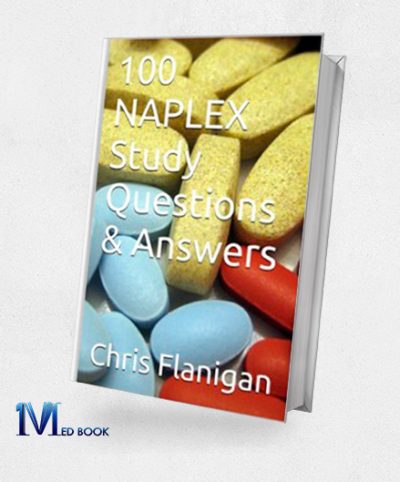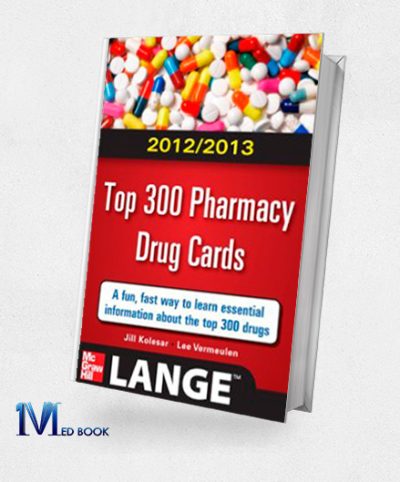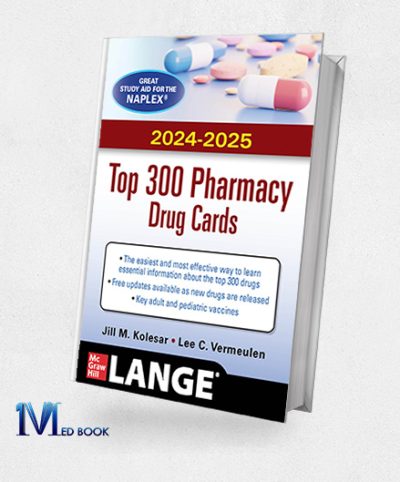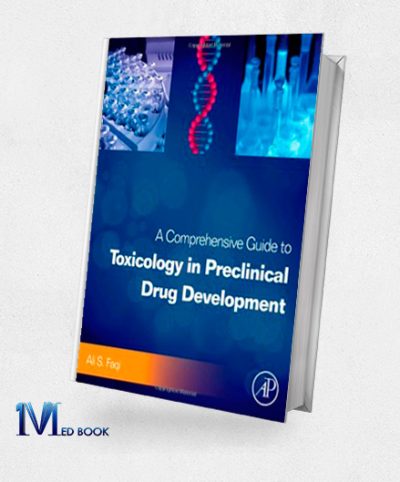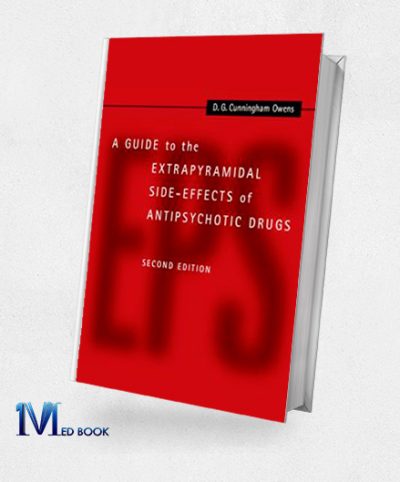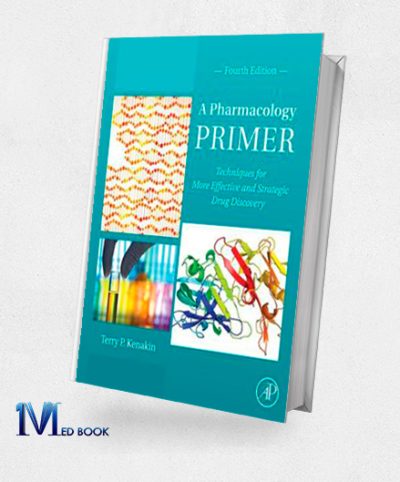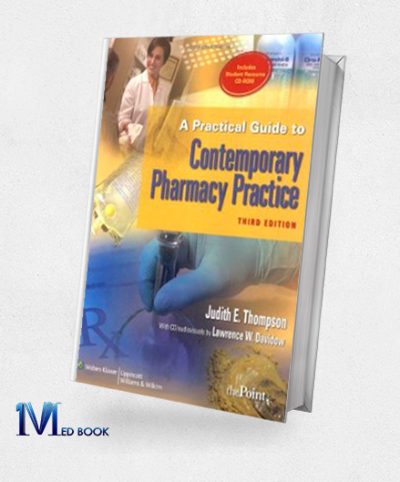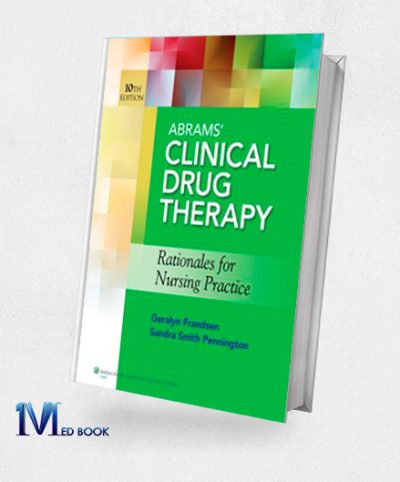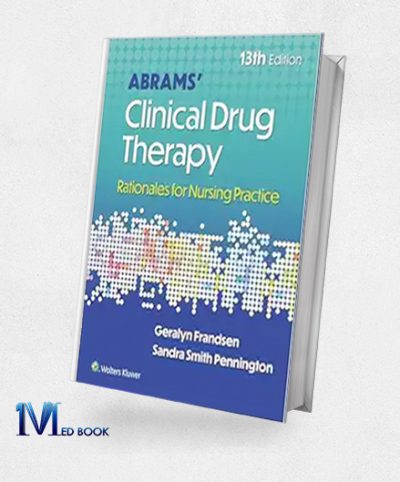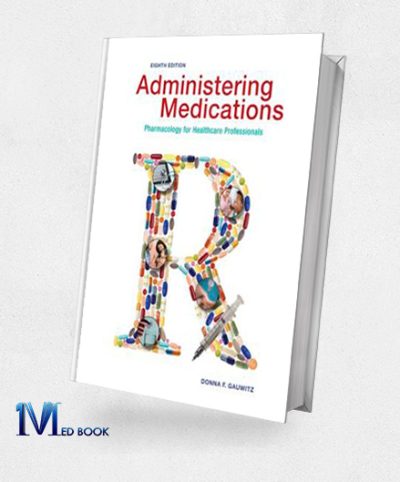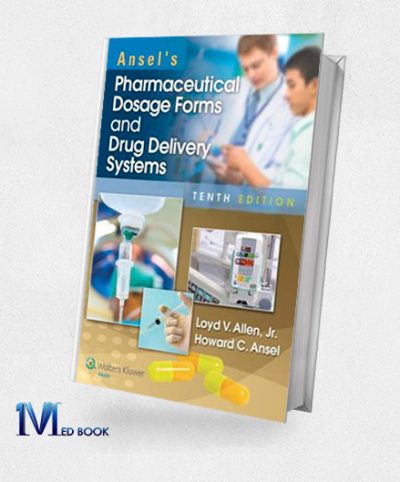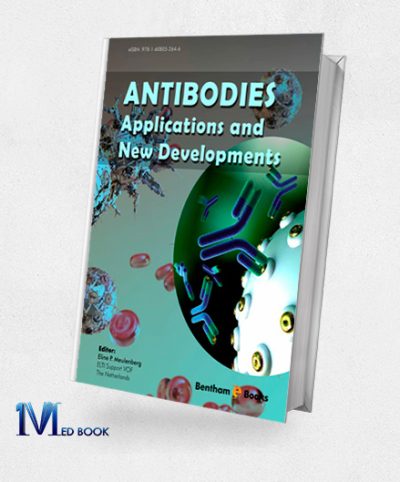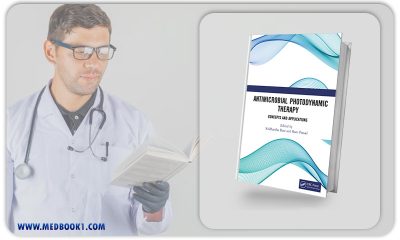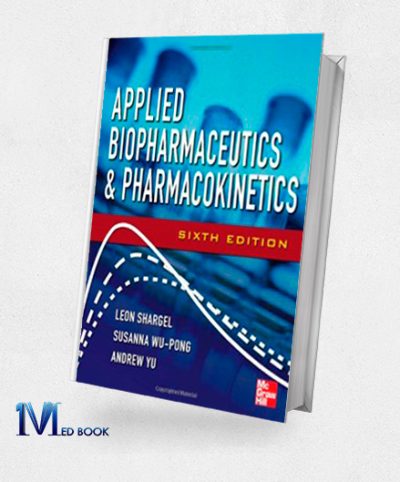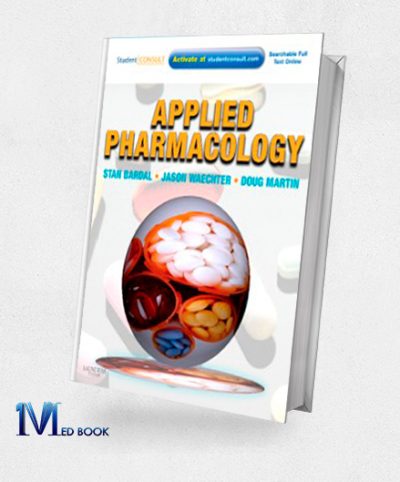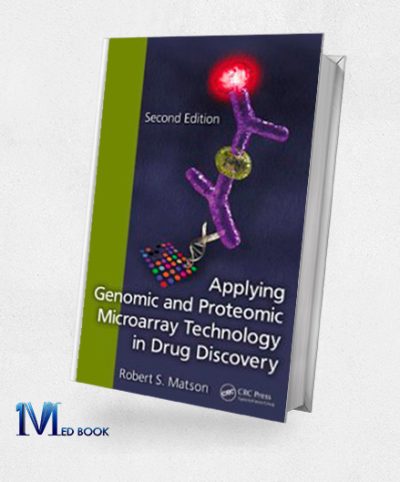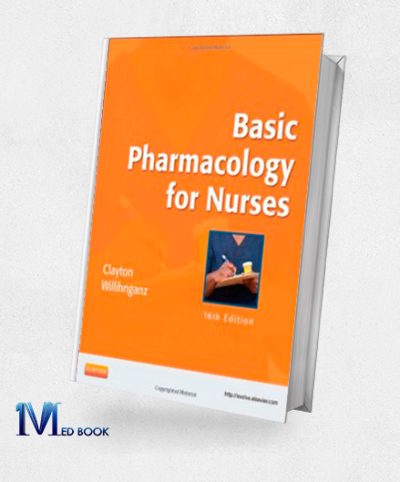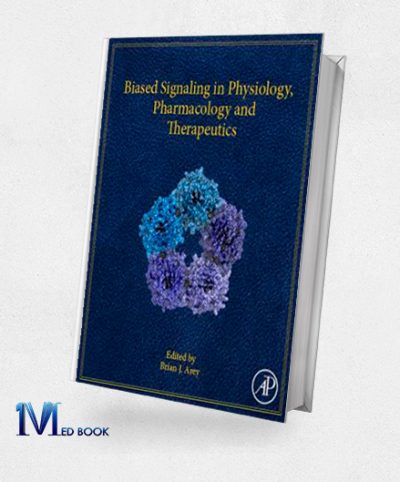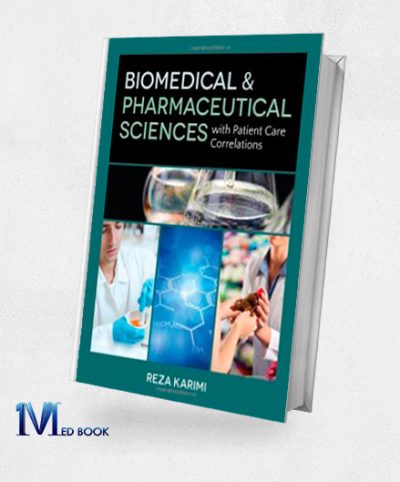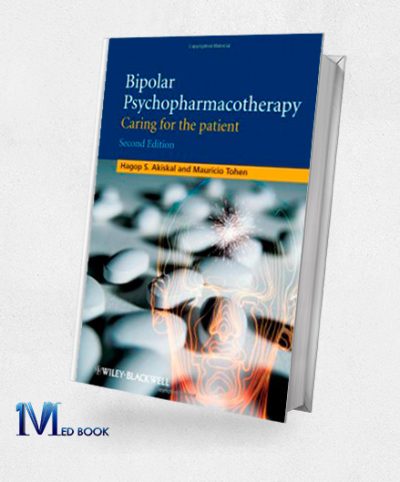Pharmacology
100 NAPLEX Study Questions and Answers (EPUB)
Original price was: $35.99.$20.60Current price is: $20.60.2012 2013 Top 300 Pharmacy Drug Cards (LANGE FlashCards)
Original price was: $36.39.$22.60Current price is: $22.60.2024/2025 Top 300 Pharmacy Drug Cards, 7th Edition (Original PDF From Publisher)
Original price was: $70.00.$37.00Current price is: $37.00.A Comprehensive Guide to Toxicology in Preclinical Drug Development (Original PDF from Publisher)
Original price was: $164.89.$29.00Current price is: $29.00.A Guide to the Extrapyramidal Side Effects of Antipsychotic Drugs 2nd Edition
Original price was: $114.14.$23.00Current price is: $23.00.A Practical Guide to Contemporary Pharmacy Practice 3rd Edition
Original price was: $76.59.$20.60Current price is: $20.60.Abrams Clinical Drug Therapy Rationales for Nursing Practice 10th Edition (Original PDF from Publisher)
Original price was: $84.00.$22.60Current price is: $22.60.Administering Medications 8th Edition
Original price was: $140.00.$24.00Current price is: $24.00.Ansels Pharmaceutical Dosage Forms and Drug Delivery Systems 10th Edition
Original price was: $73.96.$24.00Current price is: $24.00.Antibodies Applications and New Development (Original PDF from Publisher)
Original price was: $49.00.$21.00Current price is: $21.00.Antimicrobial Photodynamic Therapy (EPUB)
Original price was: $84.95.$22.00Current price is: $22.00.Antimicrobial Photodynamic Therapy (Original PDF from Publisher)
Original price was: $84.95.$22.00Current price is: $22.00.Antivaccination and Vaccine Hesitancy (Original PDF from Publisher)
Original price was: $54.95.$21.00Current price is: $21.00.Applied Biopharmaceutics & Pharmacokinetics Sixth Edition (Original PDF from Publisher)
Original price was: $65.76.$26.60Current price is: $26.60.Applied Pharmacology 1st Edition (Original PDF from Publisher)
Original price was: $62.00.$23.40Current price is: $23.40.Applying Genomic and Proteomic Microarray Technology in Drug Discovery 2nd Edition
Original price was: $142.45.$27.00Current price is: $27.00.Basic Clinical Pharmacokinetics 5th Edition
Original price was: $71.38.$20.60Current price is: $20.60.Basic Pharmacology for Nurses 16e
Original price was: $64.47.$23.60Current price is: $23.60.Biased Signaling in Physiology Pharmacology and Therapeutics (ORIGINAL PDF from Publisher)
Original price was: $141.07.$27.70Current price is: $27.70.Biomedical and Pharmaceutical Sciences With Patient Care Correlations (EPUB)
Original price was: $66.47.$23.60Current price is: $23.60.Bipolar Psychopharmacotherapy Caring for the Patient 2nd Edition (Original PDF from Publisher)
Original price was: $84.66.$20.10Current price is: $20.10.Pharmacology
1. Introduction to Pharmacology:
Pharmacology, a linchpin in the expansive field of medicine, serves as the guiding force in the meticulous study of drugs and their profound influence on the human body. This multidimensional discipline unravels the complex interplay between various substances and biological systems, unveiling the intricate mechanisms that govern their effects. At its essence, pharmacology assumes a pivotal role in deciphering the fundamental principles that underlie the therapeutic use of drugs, laying the groundwork for continuous advancements in medical science and patient care.
The significance of pharmacology transcends the mere identification of active compounds within drugs. It extends to comprehending how these compounds navigate through the intricate pathways of the human body, influencing physiological processes and eliciting therapeutic responses. The insights gleaned from pharmacological research form the bedrock upon which tailored treatments, innovative medications, and refined therapeutic strategies emerge.
2. Pharmacokinetics and Pharmacodynamics:
In the labyrinthine world of pharmacology, a comprehensive grasp of both pharmacokinetics and pharmacodynamics is imperative. Pharmacokinetics embarks on a journey through the absorption, distribution, metabolism, and excretion of drugs within the body. This exploration unveils the intricate process a substance undergoes from the moment of administration to its ultimate elimination. Simultaneously, pharmacodynamics delves into the mechanisms by which drugs exert their effects on the body, laying bare the complex molecular interactions that underpin both therapeutic and adverse outcomes.
Understanding pharmacokinetics involves dissecting how drugs traverse physiological barriers, reach their target sites, and undergo transformations within the body. The absorption phase delineates the entry of drugs into the bloodstream, while distribution explores their dissemination to various tissues. Metabolism encompasses the biotransformation of drugs, often occurring in the liver, and excretion focuses on the elimination of drug byproducts from the body. The interplay of these processes shapes the pharmacokinetic profile of a drug, influencing its efficacy and potential side effects.
Concurrently, pharmacodynamics illuminates the mechanisms by which drugs interact with specific receptors, enzymes, or other molecular targets to produce physiological responses. It is within this realm that the intricacies of therapeutic and adverse effects come to light. The binding of a drug to its target receptor triggers a cascade of events, influencing cellular functions and ultimately contributing to the observed clinical outcomes. The delicate balance between desired therapeutic effects and potential adverse reactions underscores the complexity of pharmacodynamics.
The integration of pharmacokinetics and pharmacodynamics is central to optimizing drug therapy. By tailoring drug regimens based on an individual’s unique physiological characteristics and response patterns, healthcare professionals can maximize therapeutic benefits while minimizing the risk of adverse effects. This holistic approach exemplifies the precision that pharmacology brings to the realm of medicine, ensuring that treatments are not only effective but also tailored to the diverse needs of patients.
As pharmacology advances, innovative technologies and methodologies enhance our ability to dissect the intricate details of drug behavior within the body. Pharmacokinetic-pharmacodynamic modeling, for instance, allows researchers to predict drug effects based on various factors, guiding the design of optimal dosing regimens. The synergy between these two facets of pharmacology remains at the forefront of drug development, contributing to the refinement of therapeutic strategies and the creation of more effective and safer medications.
3. Drug Classes and Mechanisms of Action:
The expansive canvas of pharmacology is adorned with a rich array of drug classes, spanning from antibiotics and analgesics to antihypertensives. Each class represents a unique chapter in the pharmacological narrative, contributing to the vast reservoir of knowledge that guides medical practitioners in their pursuit of effective therapeutic interventions. These diverse drug classes not only highlight the complexity of pharmacological interactions but also underscore the precision required to navigate the intricate landscape of patient care.
Within this intricate tapestry, the mechanisms of action delineate the intricate dance between drugs and the human body. Every drug class operates through specific molecular interactions, engaging with target receptors, enzymes, or other cellular components to elicit therapeutic effects. Antibiotics, for instance, exert their influence by disrupting bacterial cell walls or inhibiting crucial enzymes, thereby arresting the growth and replication of microorganisms. Analgesics, on the other hand, modulate pain perception by interacting with receptors in the nervous system, providing relief to individuals grappling with discomfort. Antihypertensives, with their varied subclasses, deploy diverse mechanisms—whether by relaxing blood vessels, reducing fluid volume, or altering hormonal pathways—to manage blood pressure and mitigate cardiovascular risks.
Understanding the nuances of these mechanisms is not merely an academic exercise but a fundamental prerequisite for tailoring treatments to the unique needs of individual patients. The intricate molecular interactions between drugs and their targets dictate not only the efficacy of the treatment but also the potential for adverse reactions. Mastery of these mechanisms enables healthcare professionals to make informed decisions about drug selection, dosage, and combination therapy, thereby optimizing therapeutic outcomes.
The importance of comprehending drug classes and their mechanisms of action becomes especially pronounced in the era of precision medicine. Tailoring treatments to individual patient profiles necessitates a deep understanding of how specific drugs interact with unique physiological characteristics. The evolution of pharmacology has witnessed an increasing emphasis on personalized approaches, where the identification of the most effective and well-tolerated treatment relies on a nuanced understanding of both the patient’s condition and the pharmacodynamics of the chosen medication.
4. Pharmacogenetics and Personalized Medicine:
The advent of pharmacogenetics heralds a transformative era in the landscape of drug therapy, propelling medicine toward a more tailored and individualized paradigm. This revolutionary field delves into the intricate interplay between genetic variations and individual responses to drugs, unlocking the potential for a personalized approach to treatment known as pharmacogenomics. At its core, pharmacogenetics seeks to decipher how an individual’s unique genetic makeup influences their metabolism, response to medications, and susceptibility to adverse reactions.
The human genome, a vast reservoir of genetic information, harbors the key to understanding why individuals respond differently to the same drug. Genetic variations, known as polymorphisms, can influence the activity of enzymes responsible for drug metabolism, alter drug receptor sensitivity, or impact other molecular pathways involved in drug response. By unraveling these genetic intricacies, pharmacogenetic approaches empower healthcare professionals to tailor drug treatments with unparalleled precision, optimizing therapeutic efficacy while mitigating the risk of adverse reactions.
Personalized medicine, facilitated by pharmacogenomics, envisions a future where treatment regimens are customized based on an individual’s genetic profile. This paradigm shift transcends the one-size-fits-all approach, acknowledging the inherent diversity in how individuals metabolize and respond to drugs. Pharmacogenetic testing, a cornerstone of personalized medicine, allows clinicians to identify genetic markers that can predict an individual’s response to specific medications. Armed with this information, healthcare providers can prescribe drugs that are not only effective but also well-tolerated, minimizing the need for trial-and-error approaches and reducing the incidence of adverse reactions.
The impact of pharmacogenetics extends across a spectrum of therapeutic areas. In oncology, for instance, understanding the genetic mutations driving a patient’s cancer allows for the selection of targeted therapies that specifically address the underlying molecular abnormalities. In psychiatry, knowledge of genetic variations influencing drug metabolism helps guide the prescription of psychotropic medications with greater precision. By tailoring treatments based on an individual’s genetic blueprint, pharmacogenomics represents a paradigm shift from reactive medicine to proactive and personalized care.
As the field of pharmacogenetics continues to evolve, challenges such as the integration of genetic testing into routine clinical practice and the interpretation of complex genetic data remain. However, ongoing research and technological advancements are steadily addressing these hurdles, ushering in an era where the full potential of personalized medicine can be harnessed to optimize patient outcomes. The marriage of pharmacogenetics and pharmacology epitomizes the commitment to precision medicine, where the right drug, at the right dose, for the right patient, becomes a tangible reality.
5. Adverse Drug Reactions and Safety:
A comprehensive view of pharmacology necessitates a focus on drug safety. Adverse drug reactions, influenced by various factors, highlight the critical role of pharmacovigilance. Rigorous measures are implemented to ensure the safe use of medications, underscoring the commitment to patient well-being.
6. Clinical Pharmacology and Therapeutics:
Clinical pharmacology seamlessly integrates scientific knowledge into therapeutic applications. Clinical pharmacologists contribute to the rational use of drugs, optimizing treatment regimens to ensure efficacy while minimizing risks for individual patients. Their expertise is pivotal in navigating the complex landscape of drug therapy.
7. Pharmacoeconomics and Healthcare:
The economic dimensions of pharmacology come to the forefront in pharmacoeconomics. Applying economic principles to assess the cost-effectiveness of drug therapies influences healthcare policy and resource allocation, shaping the landscape of accessible and affordable treatments.
8. Herbal Medicine and Alternative Therapies:
The fusion of traditional, complementary, and conventional approaches defines the evolving field of herbal medicine and alternative therapies in pharmacology. As challenges and opportunities unfold, the integration of diverse therapeutic modalities is explored, enriching the spectrum of available treatment options.
9. Pharmacology in Public Health:
In the broader context of public health, pharmacology contributes significantly through interventions like vaccination programs and antimicrobial stewardship. These endeavors play a pivotal role in disease prevention and health promotion on a population level, underscoring pharmacology‘s impact beyond individual patient care.
10. Challenges and Innovations in Pharmacology:
The landscape of pharmacology is not without challenges, including drug resistance and the complexities of drug development. Yet, continuous innovations, such as the promise of precision medicine, stand as beacons of progress. These innovations address existing challenges and pave the way for more effective, targeted, and personalized therapeutic interventions.
11. Conclusion:
In the intricate tapestry of healthcare, pharmacology stands as the unifying thread, weaving together the realms of drug discovery, development, and the judicious utilization of medications. This multidimensional discipline serves as the linchpin, orchestrating a symphony of scientific endeavors, clinical applications, and technological advancements to meet the dynamic healthcare needs of individuals and populations. The journey from the initial identification of potential therapeutic compounds to their safe and effective use in diverse patient populations is a testament to the indispensable role of pharmacology in modern medicine.
As we reflect on the trajectory of pharmacology, it becomes evident that its evolution is marked by an unwavering commitment to addressing the ever-changing landscape of healthcare needs. The dynamic nature of medical science, coupled with the relentless march of technological progress, continually shapes and refines the discipline. Pharmacology, as both a science and an art, adapts to emerging challenges and seizes opportunities presented by groundbreaking innovations, ensuring its enduring relevance in the pursuit of optimal patient care.
The contemporary healthcare landscape is characterized by an unprecedented pace of change, driven by factors such as scientific discoveries, demographic shifts, and the globalization of healthcare systems. In this milieu, pharmacology plays a central role in translating scientific knowledge into tangible improvements in patient outcomes. The journey begins with the identification of potential therapeutic agents, guided by an intricate understanding of pharmacokinetics, pharmacodynamics, and the nuanced mechanisms of action of diverse drug classes.
The meticulous orchestration of clinical trials and research endeavors further refines our understanding of drugs, allowing for the optimization of treatment regimens through the lens of clinical pharmacology. The advent of personalized medicine, propelled by the insights gained from pharmacogenetics, represents a paradigm shift that transcends the traditional one-size-fits-all approach. Instead, it heralds an era where treatments are tailored to the unique genetic makeup of each individual, ushering in a new era of precision and efficacy.
Amidst these advancements, pharmacology does not exist in isolation but harmonizes with the broader landscape of healthcare. It responds to challenges such as drug resistance, ensuring that our therapeutic arsenal remains effective against evolving pathogens. Innovations in drug delivery systems and formulations enhance patient adherence and convenience, contributing to the optimization of treatment outcomes. Moreover, pharmacoeconomics plays a pivotal role, guiding healthcare policy by evaluating the cost-effectiveness of drug therapies and influencing resource allocation in an era of constrained budgets.
The challenges faced by pharmacology are as diverse as the therapeutic landscapes it navigates. Drug development, marked by high costs and lengthy timelines, requires innovative approaches to accelerate the translation of scientific discoveries into clinical applications. Issues of medication safety and adverse drug reactions underscore the need for robust pharmacovigilance systems that monitor and mitigate risks, ensuring that the benefits of medications far outweigh potential harms.
In addressing these challenges, pharmacology leverages cutting-edge technologies, data analytics, and interdisciplinary collaborations. The advent of artificial intelligence and machine learning, for instance, transforms drug discovery and development by expediting the identification of promising candidates and predicting their pharmacological profiles. Precision medicine, facilitated by the integration of genomics and pharmacology, opens new frontiers in tailoring treatments to individual genetic susceptibilities, optimizing therapeutic outcomes while minimizing adverse effects.
As pharmacology continues to evolve, the vision for the future crystallizes into a landscape where the right drug reaches the right patient at the right time. This aspiration is not merely a theoretical construct but a tangible goal that propels ongoing research, clinical practice, and policy initiatives. The fusion of pharmacological knowledge with the principles of personalized medicine, innovative technologies, and a holistic understanding of patient needs positions pharmacology as a driving force in shaping the future of healthcare.
In this dynamic journey, pharmacology serves as a beacon of scientific rigor, ethical practice, and patient-centered care. Its continuous evolution mirrors a commitment to unraveling the complexities of the human body, deciphering the language of molecular interactions, and harnessing this knowledge for the betterment of global health. As we stand at the threshold of a new era in medicine, pharmacology remains not only a discipline but a guiding force, ensuring that the promise of optimal, personalized healthcare becomes a reality for individuals and communities worldwide. The legacy of pharmacology is not merely written in textbooks; it unfolds daily in clinics, laboratories, and healthcare systems across the globe, shaping a future where healthcare is not just accessible but truly transformative.

